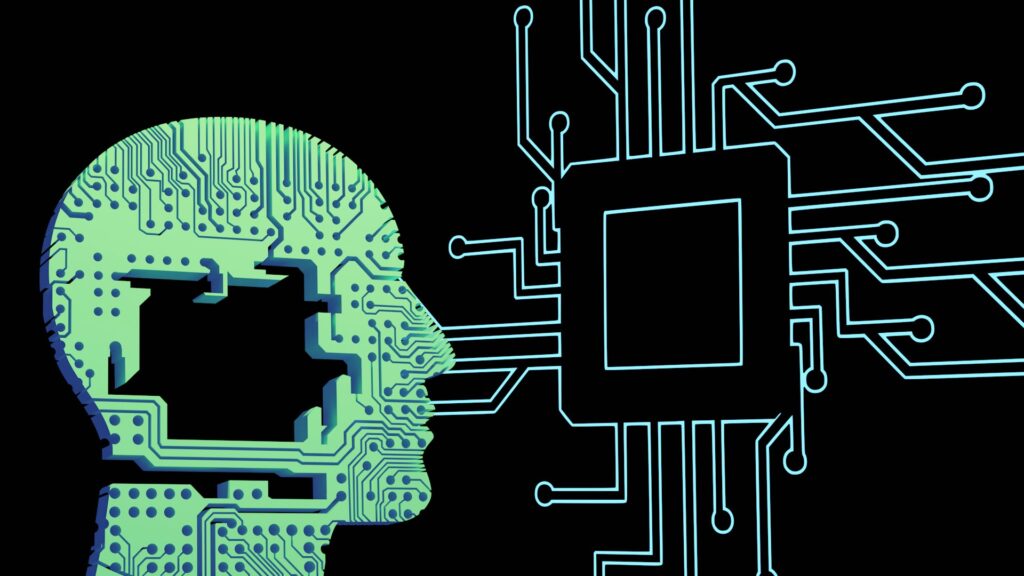Statistical data shows that the worldwide business employment of AI in creating content is approximately 35%. The quick advancement of generative AI tools has led to a big change in workplace methods today, altering how tasks are done across different sectors.
Generative AI, which includes algorithms that can create content such as text or images and even designs and code, transforms work methods by boosting productivity and creativity while improving effectiveness.
This article will cover the various effects of generative AI on work today. We will emphasize its capacity to increase productivity, foster innovation, and improve tailored customer service.
Enhancing Productivity and Efficiency
The use of generative AI tools is very important for enhancing productivity and efficiency at work. These tools can automate repetitive tasks that take up a lot of time, which allows employees to concentrate on more complicated and imaginative activities. For example, in content creation, platforms powered by AI such as the PopAI AI writing tool can produce good-quality articles, reports, and marketing material within minutes, instead of hours it takes for people to create similar content. Also, in software creation, generative AI has the ability to automatically write and fix code. This can speed up the process of development and lessen mistakes made by humans.
Additionally, generative AI boosts the ability to analyze data. Systems with AI can go through large quantities of information and find patterns, trends, or insights that would be hard for humans to notice by traditional manual methods. This is very useful in areas like finance, healthcare, and marketing, which rely on data for making decisions. Generative AI, in automating the analysis of data, saves time and makes the generated insights more accurate and dependable.
Driving Innovation and Creativity
Generative AI provides new tools and methods for coming up with ideas or dealing with issues. This technology helps professionals to explore what’s doable within their fields of expertise. For instance, in design and architecture, generative AI can produce complex designs that human designers would not come up with on their own. Afterward, the designs created by AI can be further developed and personalized by human professionals. This combination produces novel results that are both innovative and unique.

In the field of art and entertainment, generative AI is allowing new paths for creativity. Through AI algorithms, music can be composed, screenplays can be written, and visual art can be created, such as with the use of the Sexy AI Art Generator. These artificial intelligence-produced items might inspire artists or become part of their creative works. The coming together of human imagination with AI-made content is creating new types of art and media encounters, which are enhancing the cultural scenery.
Enabling Personalized Customer Experiences
Generative AI gives a new aspect to customer experiences, by enabling unprecedented levels of personalization. In marketing, AI-powered tools can create customized content and ads that connect with each person’s likes and actions. By studying the consumers’ data, generative AI can give personalized recommendations for products along with emails or social media posts that enhance the engagement and satisfaction of the customer.
In customer service, generative AI is transforming how companies communicate with their clients. Chatbots and virtual assistants powered by AI can give immediate and precise answers to customer questions, enhancing the speed of replies and client happiness. These AI aids are also capable of managing multiple interactions at once, guaranteeing that customers get help quickly without having to wait for a long time. The ability of generative AI to deliver personalized and efficient customer service is a key factor in building strong customer relationships and loyalty.
Fostering Collaboration and Communication
Collaboration and communication are being improved by generative AI tools in organizations. Platforms with AI can support virtual meetings, brainstorming sessions, and project organizing by giving live transcription services that also translate and summarize content. This is especially helpful for global organizations having teams from different parts of the world. These features assist in overcoming language barriers and making sure all team members can take part efficiently.

Also, generative AI has the potential to improve cooperative creativity by producing ideas and answers that group members can work on. When brainstorming, for instance, an AI tool might propose imaginative notions derived from the input of those involved in the session. This type of teamwork combines the abilities of human creativity and AI computational strength for better results that are both original and strong.
Presenting New Challenges and Considerations
Apart from its many benefits, the move towards generative AI will bring its own set of difficulties and reflections. One key worry is job displacement. As AI tools become better at doing tasks humans used to do, there could be a danger that some jobs might no longer be needed. Organizations should take the initiative in handling this matter by putting money into reskilling and upskilling plans. These are meant to assist workers in shifting towards new duties that match AI technologies.
One more difficulty is the fair use of generative AI. The power of AI to create content, like deepfakes or deceptive data, brings up worries about false information and private matters. Organizations must put in place strong rules about ethics and governance so that they can use AI responsibly and clearly. Moreover, it’s essential to have control from regulatory bodies to handle possible misuse and safeguard the rights and privacy of individuals.
Bottom Line
The effects of generative AI tools in today’s work are deep and many-sided. They increase productivity and efficiency, stimulate invention and imagination, allow for customized customer experiences, as well as promote teamwork.
Moreover, the application of AI can lead to job displacement and raise ethical concerns. These matters need to be tackled for AI’s benefits to be utilized responsibly. As generative AI keeps advancing, its inclusion in work settings will surely affect the future of jobs, providing new chances and problems for groups as well as workers.


